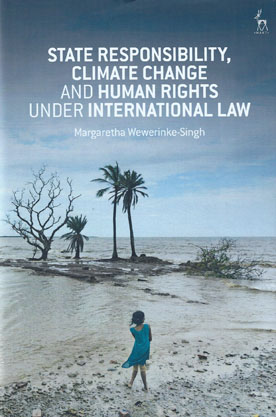
The last decade has witnessed an increasing focus on the impact of climate change on the enjoyment of human rights.
Several international human rights bodies have now recognised the negative implications of climate change for the enjoyment of the rights to life, food, health, housing and self-determination, among others, and regularly call on states to ensure the participation of women, indigenous peoples and other vulnerable groups in climate change-related actions.
Yet despite this, there are still significant gaps in our understanding of the role of international human rights law in enhancing accountability for actions related to climate change.
While accountability is central to human rights law and practice, in the context of climate change it has been undermined by a lack of clarity regarding a series of legal and practical questions. Other pressing questions are the relationship between international human rights law and the UNFCCC regime, and to what extent human rights bodies are competent to deal with cases related to climate change.
This book offers a timely and comprehensive analysis of the issues related to accountability for the human rights impact of climate change, drawing on the state responsibility regime.